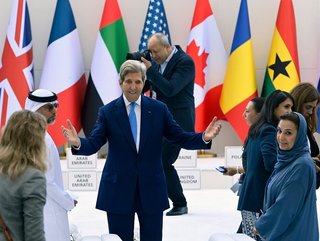What were the main achievements and agreements at COP28?

When we look back at COP28, what will we remember? Like so many Conference of the Parties climate change gatherings, hopes were sky high ahead of the opening in Dubai, but were brought down to earth at its close.
But let’s not forget that despite not agreeing on a ‘phasing out’ of fossil fuels, this COP is the first to explicitly state a ‘transition away’ from fossil fuels.
Inevitably, with COP being held in the Middle East, fingers were pointed at oil-producing nations, including Saudi Arabia, and hosts the UAE – but it was also the two most populous nations on earth that shunned such a move.
India and China both rely heavily on fossil fuels and although they are investing in renewables, they are adamant that coal, oil and gas are essential to their economies.
“It is very clear that India’s energy needs for development, which are substantial, cannot be deferred,” India stated in a message to the UN Framework Convention on Climate Change.
“India’s reliance on coal is critical to its energy security in the background of the relative paucity of oil and natural gas of domestic origin.”
India also argues the point that if rich, developed nations are not phasing out fossil fuels, why should a developing nation be asked to do so?
And that is the sticking point of so many of the conversations and debates we witness at every COP. The developed versus the developing, the haves versus the have-nots.
Set against that backdrop, you could argue that the final agreement to include any mention of reducing fossil fuels is a considerable victory.
The pledges – loss and damage to renewables
It all started so well. Within hours of the official opening at the impressive EXPO site in Dubai, hundreds of millions of dollars were pledged for the Loss & Damage Fund. The UAE opened the pledges with US$100 million, closely followed and matched by Germany.
By the end of COP28, the Fund totalled US$770.6 million. The US pledged just US$17.5 million, while the UK and Canada were accused of simply re-pledged money they had already committed.
Elsewhere, 130 countries signed a deal to triple production of renewable energy and double energy efficiency. Led by EU president Ursula von der Leyen, the plan is to generate 11TW by 2030.
“With this global pledge, we have built a broad and strong coalition of countries committed to the clean energy transition – big and small, north and south, heavy emitters, developing nations and small island states,” she said.
“We are united by our common belief that to respect the 1.5C goal in the Paris Agreement, we need to phase out fossil fuels. We do that by fast-tracking the clean energy transition, by tripling renewables and doubling energy efficiency.”
Food and agriculture is a major contributor to carbon emissions, and this was tackled at the World Climate Action Summit with the Emirates Declaration on Sustainable Agriculture, Resilient Food Systems and Climate Section. This was backed by more than 150 parties that represent more than three quarters of the world’s total food emissions, according to UAE Climate and Environment Minister Mariam Almheiri.
Deforestation is also linked to food production, and new measures to tackle this perennial problem were announced at COP28.
Tropical Forests Forever is the rather catchy title for a new fund announced by Brazil, home of course to the Amazon rainforest and host of COP30 in 2025.
Launched by Brazil’s Environment Minister Marina Silva and Finance Minister Fernando Haddad, the aim is to provide finance to 80 tropical countries forests maintained or restored. Brazil hopes to raise US$250 billion for the fund from benevolent sovereign wealth funds and oil companies.
Hope springs eternal when it comes to technology somehow solving climate change.
While this may be blind faith on the part of some, think tank RethinkX has said that just eight technologies can directly eliminate over 90% of net greenhouse gas (GHG) emissions worldwide within 15 years. These technologies cover just three sectors – energy, transport, and food – and they are all proven.
Now, they need to scale, and fast. With only 10% of venture capital funds going to climate tech, the opportunity is clear.
Dubai has now passed on the baton to Baku in Azerbaijan to host COP29.
Another oil-producing nation, it will be interesting to see how the legacy of COP28 unfolds.






